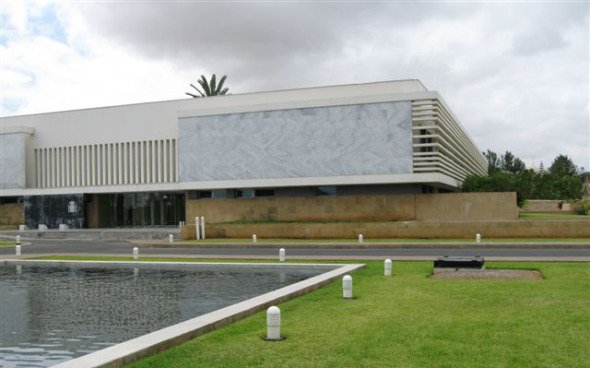The Diplomat
The Chargé d’Affaires of the Spanish Embassy in Morocco, Borja Montesino, took part on Thursday, along with diplomats from other countries, in a guided visit to the headquarters of the Moroccan anti-terrorist service, according to Efe.
This is the first time that the Moroccan authorities have included the Spanish Embassy in an official act since the crisis between the two countries broke out last April, following the reception in a hospital in Logroño of the Polisario Front leader, Brahim Gali, to be treated for COVID-19.
On 16 June, for example, the Moroccan government left Spain out of a meeting convened with diplomatic representatives by the president of the Special Commission on the Moroccan Development Model, an action that was interpreted as a gesture to express its displeasure with our country.
For the visit to the headquarters of the Central Bureau of Judicial Investigation (BCIJ), the judicial arm of the General Directorate of Surveillance of the National Territory (DGST, the internal intelligence service), Morocco did include the Spanish ambassador, Ricardo Díez-Hochleitner, in the group of 22 ambassadors invited. As Díez-Hochleitner is on holiday, he was replaced by the embassy’s “number two”, Borja Montesino, who took up his post a few days ago.
At the end of the visit, Montesino made statements to the Moroccan press, stressing the importance of cooperation on terrorism, which he said is an essential component of the broad partnership between Spain and Morocco.
The presence of a Spanish representative on a visit to Morocco’s counter-terrorism services would have gone unnoticed in a normal situation, but the persistence of the bilateral crisis means that more attention has been paid to it.
Morocco, in addition to facilitating the mass arrival of migrants in Ceuta on 17-18 May, recalled its ambassador in Madrid, Karima Benyaich, for consultations in protest at Gali’s presence in Spain, but the Spanish government did not respond with a similar measure and kept its ambassador in Rabat.
The Spanish authorities have avoided an escalation of actions, trying to redirect the bilateral relationship, although Morocco has not made many gestures to achieve this goal. The departure of Arancha González Laya from the Foreign Ministry was welcomed by Rabat, but no progress is known to have been made since the arrival of her successor, José Manuel Albares.
The current foreign minister has insisted in recent days that prudence and discretion are needed to move towards normalisation of relations.
Morocco, for its part, continues to hope that Spain will adopt less neutral positions on the Western Sahara issue and join the United States’ decision, taken during Donald Trump’s administration, to recognise the territory’s Moroccan status.






